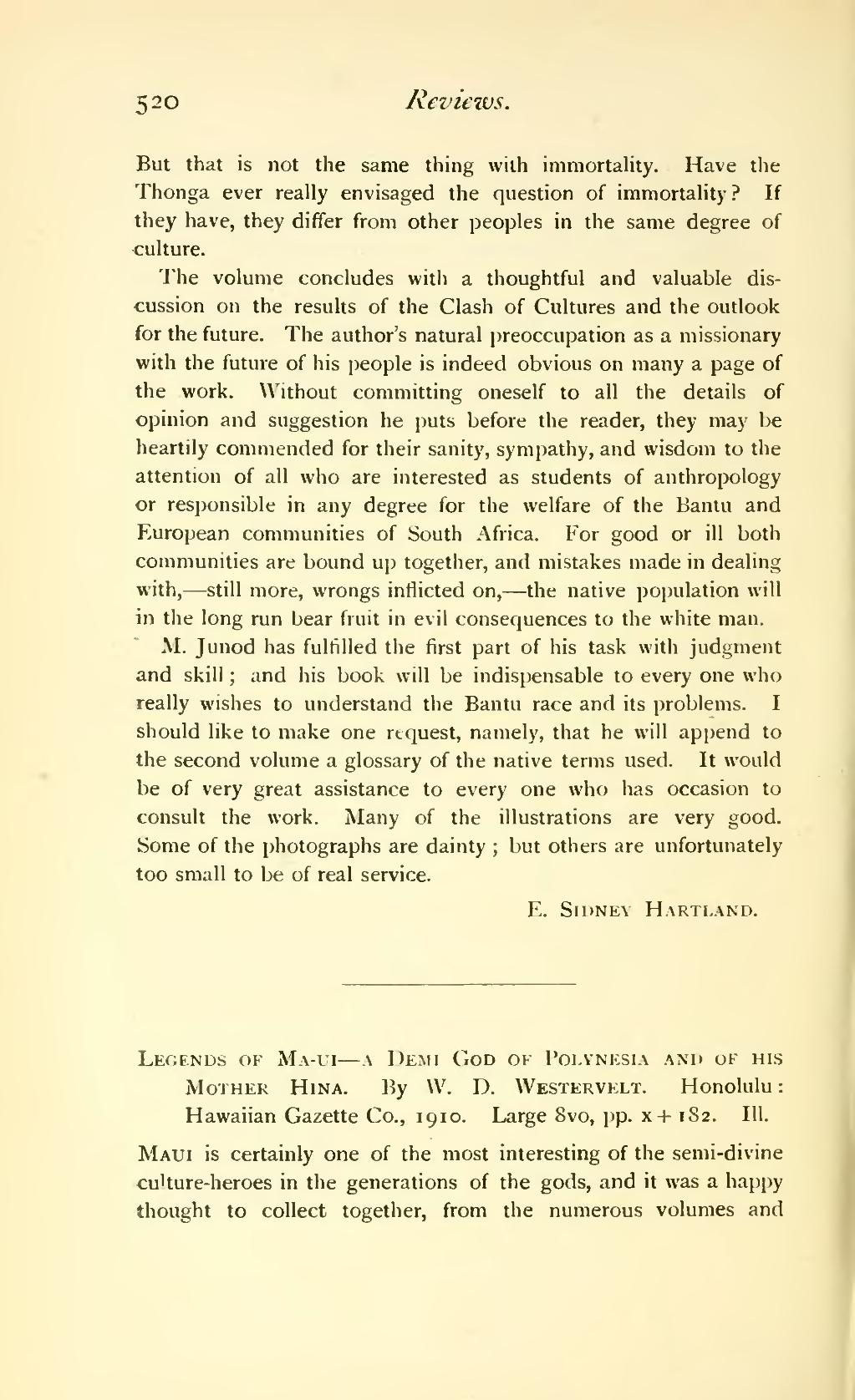520 Reviews.
But that is not the same thing with immortaUty. Have the Thonga ever really envisaged the question of immortality ? If they have, they differ from other peoples in the same degree of culture.
The volume concludes witii a thoughtful and valuable dis- cussion on the results of the Clash of Cultures and the outlook for the future. The author's natural preoccupation as a missionary with the future of his people is indeed obvious on many a page of the work. Without committing oneself to all the details of opinion and suggestion he puts before the reader, they may be heartily commended for their sanity, sympatiiy, and wisdom to the attention of all who are interested as students of anthropology or responsible in any degree for the welfare of the Bantu and European communities of South Africa. For good or ill both communities are bound up together, and mistakes made in dealing with, — still more, wrongs inflicted on, — the native population will in the long run bear fruit in evil consequences to the white man.
M. Junod has fulfilled the first part of his task with judgment and skill ; and his book will be indispensable to every one who really wishes to understand the Bantu race and its problems. I should like to make one request, namely, that he will append to the second volume a glossary of the native terms used. It would be of very great assistance to every one who has occasion to consult the work. Many of the illustrations are very good. Some of the photographs are dainty ; but others are unfortunately too small to be of real service.
E. Sidney Hartland.
Legends of Ma-ui — a Demi God of Polynesia and of his Mother Hina. By W. D. Westervelt. Honolulu : Hawaiian Gazette Co., 1910. Large 8vo, pp. x+ 1S2. 111.
Maui is certainly one of the most interesting of the semi-divine culture-heroes in the generations of the gods, and it was a happy thought to collect together, from the numerous volumes and
